#Iran Outari
Explore tagged Tumblr posts
Text
WHERE IS THE FRIEND’S HOUSE?
Boy walks through villages
To return classmate’s notebook
What he does for friends
youtube
#where is the friend’s house#random richards#poem#haiku#poetry#haiku poem#poets on tumblr#haiku poetry#haiku form#poetic#haiku on tumblr#criterion collection#Khane-ye doust Kodjast?#Babek Ahmed Poor#Khodabakhsh Defaei#Iran Outari#Ait Ansari#abbas kiarostami#Ahmed Ahmed Poor#Youtube
0 notes
Photo
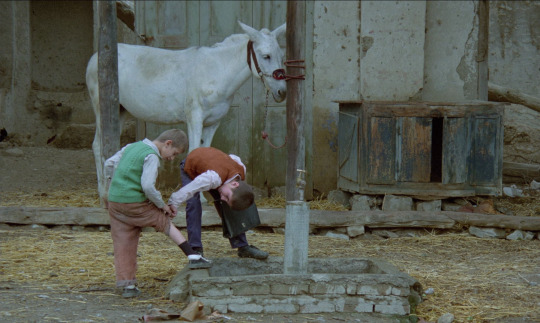
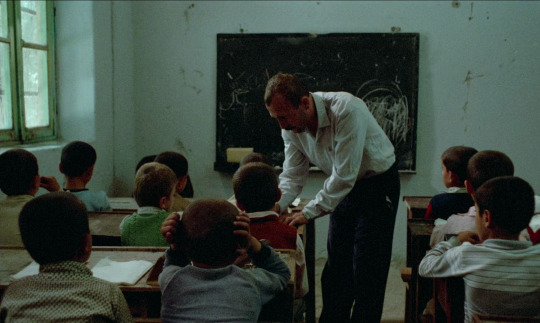
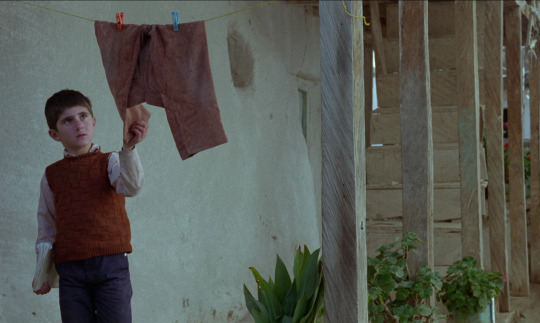
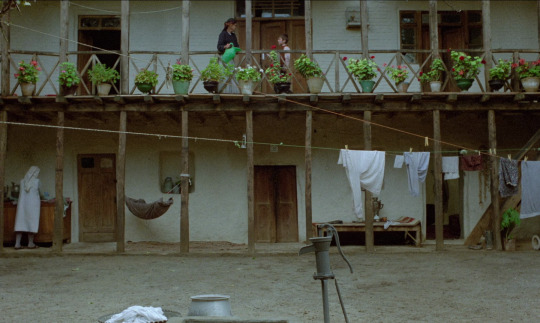
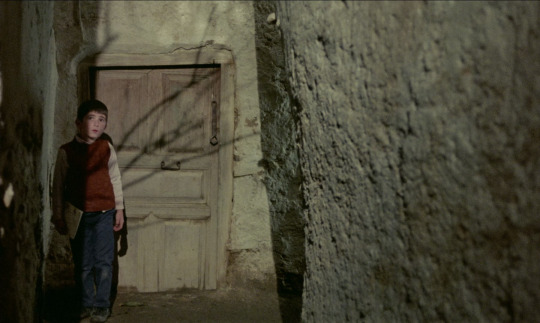
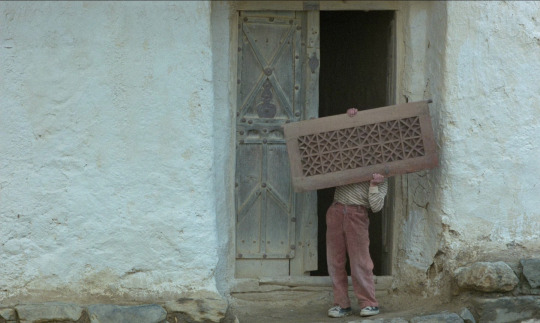
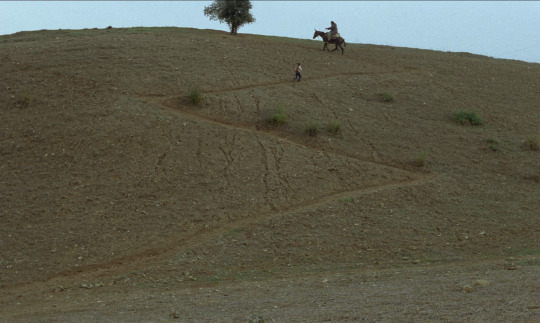
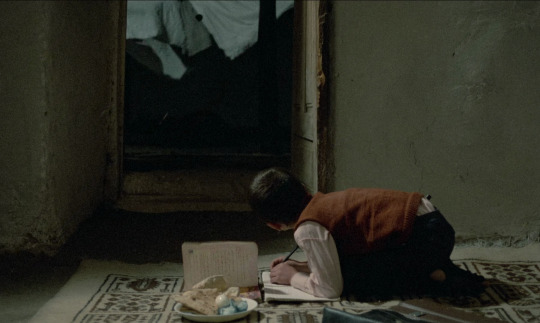

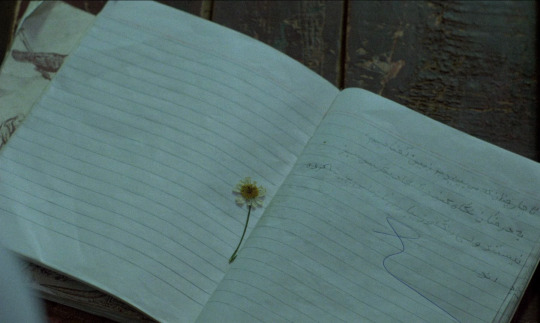
Where Is the Friend’s Home? (Kiarostami, 1987)
#where is the friend's home#where is the friend's house#where is my friend's house#خانه دوست کجاست#Abbas Kiarostami#kiarostami#Babek Ahmedpour#Ahmed Ahmedpour#Kheda Barech Defai#Iran Outari#Mohammad Hossein Rouhi#cinema#film#iran#persia
62 notes
·
View notes
Text










Where Is the Friend's Home? (1987)
Director - Abbas Kiarostami, Cinematography - Farhad Saba
#scenesandscreens#Kadiret Kaoiyenpour#Hajar Farazpour#Mohammad Hossein Rouhi#Rafia Difai#Agakhan Karadach Khani#Teba Solimani#Mohammad Reza Parvaneh#Farahanka Brothers#Maria Chdjari#Hamdollah Askarpour#Biman Mouafi#Ali Jamali#Aziz Babai#Nader Gholami#Akbar Moradi#Where Is the Friend's Home?#Kheda Barech#Iran Outari#Ayat Ansari#Sadika Tohidi#Farhad Saba#Babek Ahmedpour#Ahmed Ahmedpour#Abbas Kiarostami
12 notes
·
View notes
Text

Picked up the Criterion boxset of the Koker trilogy.
10.19.19
#watched#film#letterboxd#where is the friend's house#abbas kiarostami#criterion collection#babek ahmed poor#ahmed poor#kheda barech defai#iran outari#ait ansari#sadika taohidi#biman mouafi
2 notes
·
View notes
Photo
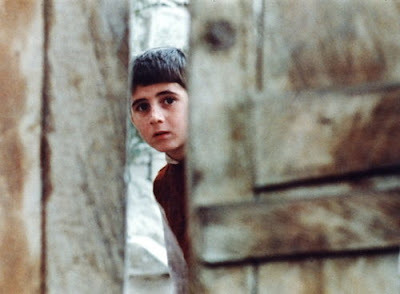
Babek Ahmed Poor in Where Is My Friend's House? (Abbas Kiarostami, 1987)
Cast: Babek Ahmed Poor, Ahmed Ahmed Poor, Khodabakhsh Defaei, Iran Outari, Ait Ansari, Sadika Taohidi, Biman Mouafi, Ali Djamali, Aziz Babai, Rafia Difai. Screenplay: Abbas Kiarostami. Cinematography: Farhad Saba. Film editing: Abbas Kiarostami. Music: Amine Allah Hessine.
I think Dickens would have liked Abbas Kiarostami's Where Is My Friend's House? It deals with one of Dickens's great subjects: the anomalous place of children in an adult world that often doesn't even hear or see them or recognize them as human beings with their own problems and concerns. It's the story of 8-year-old Ahmed (Babek Ahmed Poor), who goes to school in the village of Koker. One day the teacher berates the boy who sits next to Ahmed, Mohamed Reda (Ahmed Ahmed Poor), because he has done his homework on a piece of paper and not in the prescribed notebook. It's the third time Mohamed has done this, the teacher scolds, and the next time he'll be expelled. We can see Ahmed wincing at the treatment of Mohamed, and after school he helps the boy when he stumbles and drops his schoolbooks. When he gets home, Ahmed discovers that he has accidentally picked up Mohamed's notebook and is horrified that this means the boy will be expelled. He tells his mother that he needs to take the notebook to his friend, but she's preoccupied with doing the wash and tending to the baby, so she tells him to do his homework first and then to pick up the bread for dinner. Perplexed, Ahmed tries to do his homework but his mother keeps interrupting him to help with the baby or to carry the washbasin, constantly dismissing his insistence that it's important that he deliver the notebook. Finally, he seizes the opportunity to leave, but he knows only that Mohamed lives in the neighboring village of Poshteh, which is over the hill from Koker. So he races up the zigzag trail that takes him over the steep hill and down through the olive grove that lies outside the village. He knows Mohamed's family name is Nematzadeh, but there are lots of Nematzadehs in Poshteh, and he doesn't know which branch of the family is his friend's. Finally, he gets a lead and is told that Mr. Nematzadeh and his son have just set off for Koker. So he races back over the hill, only to be delayed in his search by his own grandfather (Rafia Difai), who sends Ahmed off to fetch his cigarettes. While Ahmed is running this errand, the grandfather expounds his theories of child-rearing to a friend: His own father, the grandfather says, would give him some money and a beating every other week, whether he deserved it or not. Sometimes, he admits, his father would forget the money, but he always remembered the beating. This, the grandfather proclaims, taught him the discipline and obedience that children today like Ahmed don't learn. Meanwhile, Ahmed, who is struggling to fulfill what he sees as his duty to his friend and his family, has learned that the boy who accompanied Mr. Nematzadeh was not Mohamed, and that the man has just started back for Poshteh, riding on a donkey. So Ahmed makes another trip over the hill, keeping Nematzadeh in sight and following him into the labyrinthine streets and alleys of Poshteh, only to discover that he has the wrong branch of the family after all. Eventually, after another misadventure, a despondent Ahmed returns home, finishes his own homework, and copies it into Mohamed Reda's notebook, which results in a well-earned happy ending. It's an excellent movie for children, but beside that, Kiarostami's screenplay, direction, and editing, and his empathy with the people and landscape of Northern Iran bring everything together into a fable about miscommunication and the difficulties of growing up. It's not as ambitious or complex as some of Kiarostami's later films, but it has their depth of feeling and brilliance of execution.
1 note
·
View note
Photo

Iran Outari is the mother in Where is the Friends Home? (1987). This is her only film credit.
0 notes